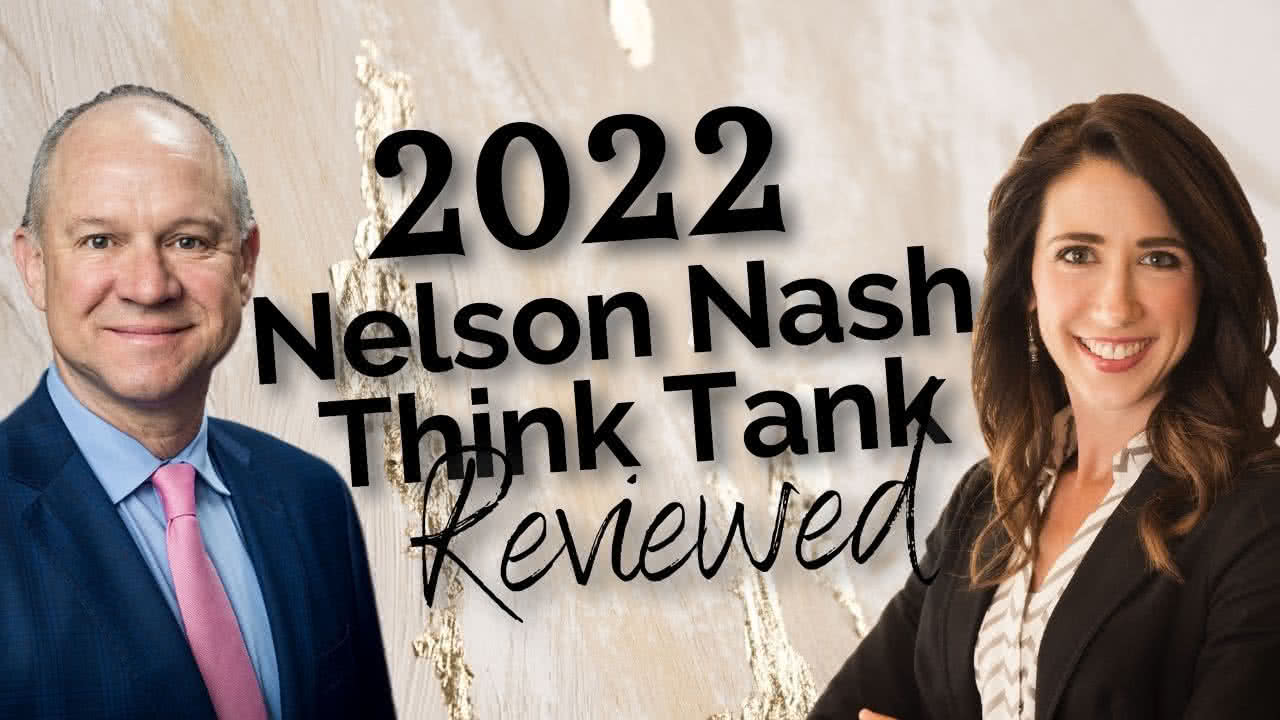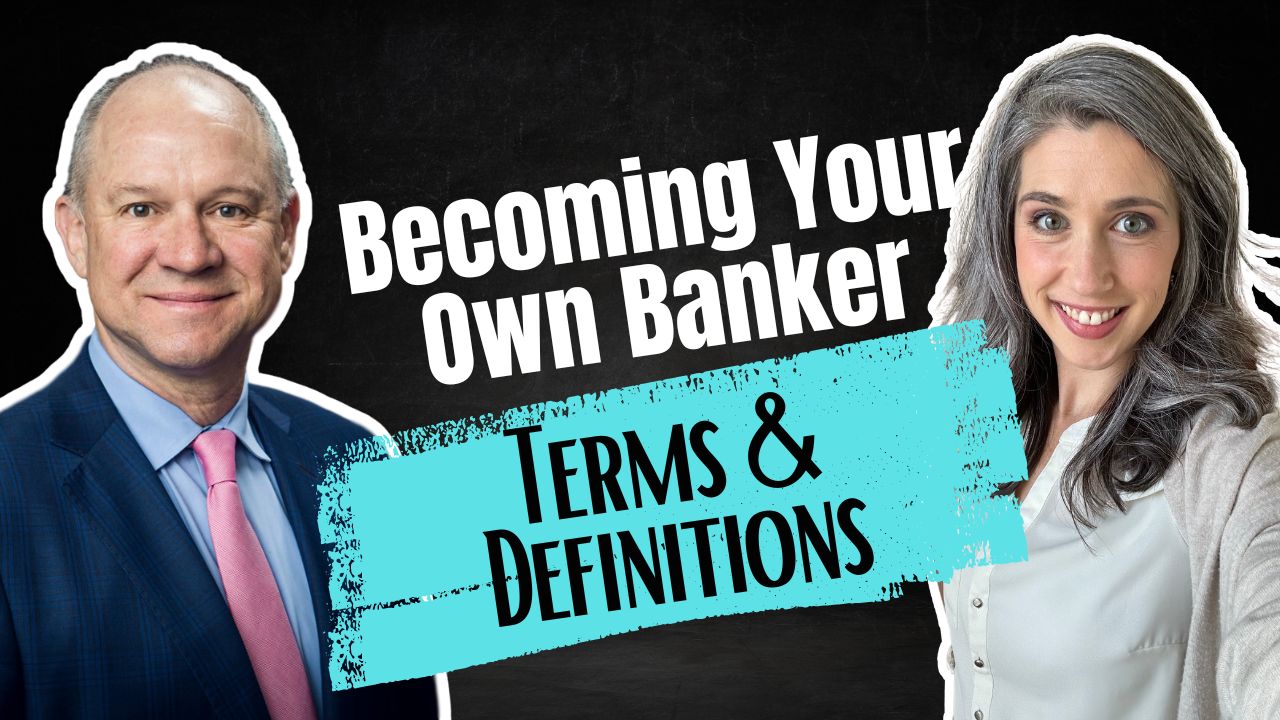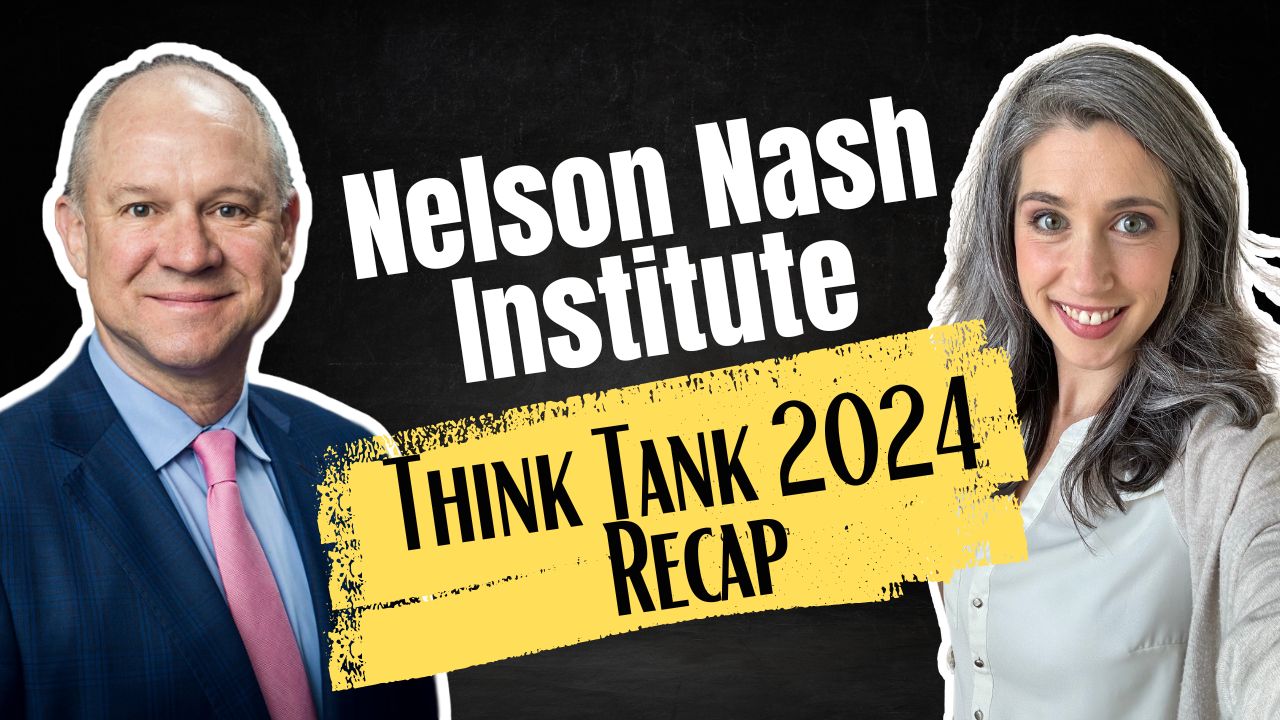
2022 Nelson Nash Think Tank Reviewed
Nelson Nash, Father of Infinite Banking, left quite a legacy. One of the things that he poured his life into was teaching and training advisors to serve clients with excellence. Every year, IBC practitioners, clients, or anyone searching for a deeper understanding of Infinite Banking gather at the Nelson Nash Think Tank. There, they share ideas and recommit to the fundamentals of Infinite Banking the way Nelson taught.
Bruce traveled to the 2022 Nelson Nash Think Tank, and I’m looking forward to discussing his observations and thoughts.
So if you would like to hear some of the most important topics, issues, and trends in Infinite Banking … tune in now!
Podcast: Play in new window | Download (Duration: 1:02:44 — 71.8MB)
Subscribe: Apple Podcasts | Spotify | Android | Pandora | RSS | More
Table of contents
Who is Nelson Nash and What is the Think Tank?
There’s an incredible amount of knowledge at the root of the Infinite Banking Concept, which was created by Nelson Nash the author of Becoming Your Own Banker. Whole life insurance itself was not a new product or discovery. However, Nelson Nash realized that there could be a greater purpose and use for specially-designed whole life insurance. He used this strategy himself and later coined the term “Infinite Banking Concept.”
He created his books and the IBC practitioner program to help more insurance producers understand IBC. And subsequently, he created the program so that IBC could help more people. The Nelson Nash Think Tank is an annual conference for dedicated IBC practitioners to keep their knowledge sharp. It also helps IBC practitioners to identify and solve problems in the industry.
The Importance of the Fundamentals
One benefit of the Nelson Nash Think Tank, for IBC practitioners, is that it is a return to the fundamentals. In other words, the basic essentials of the Infinite Banking Concept.
In any industry, it’s easy to look forward to fresh ideas and new ways to approach business. However, the fundamentals are the basic principles that hold everything together and guide your actions. Returning to the fundamentals ensures that you continue to stay on the path, and remain true to the most basic ideas. The same is true for IBC.
[5:25] “Everything you do in life, whether it’s learning a new skill or your own family, there should be some things that should be consistent and repeatable… Kind of like we talk about with money principles.”
Not only can refreshing your understanding of the fundamentals help you approach new challenges, but it can also help you retain a “beginner’s mindset.” When you’re an expert in a field, it’s all too easy to forget that others don’t necessarily have the same background or understanding. But if you attempt to teach someone as if they DO, things get lost in translation.
Returning to the basics in your own practice can help you more effectively teach or help someone with a beginner’s understanding of a topic.
Perfect Practice Makes Perfect
Studying the fundamentals also ensures that you understand all the intricacies and nuance of your craft. True mastery takes time, effort, and dedication. It may seem boring to rehearse the basics, when there may be more interesting or complex things to study. However, it’s critical to know the fundamentals so well that you can recall them at the drop of a hat.
For example, as a basketball player, the fundamentals may be to take proper care of your feet. It seems simple, trivial even. But if you buy the wrong socks, or don’t lace your shoes correctly, you can get blisters that cause more issues down the road.
The more you return to and practice the basics of your craft, profession, or industry, the more you prepare yourself to operate at the best of your ability and minimize mistakes.
What Are the IBC Fundamentals?
Banking is a Process
When Nelson Nash coined the term Infinite Banking, he emphasized that banking is a process. More important than creating a bank, which is a word with many definitions, is creating a process of banking. This process includes saving money into a system, taking loans from a system, and repaying those loans.
The banking process is one of the most important processes in the economy. Without banks, nothing in our daily life functions. But bank institutions are fragile. So creating your own banking system, or process, with a whole life insurance policy gives you more certainty and control.
The idea of a personal bank is more interesting when you consider how banks make money, which is by selling other people’s money. In other words, banks leverage the money their customers give them and loan it out to other customers. Banks then make money on the interest payments, using none of their own money.
Whole life insurance allows you to create your own warehouse of wealth so you can leverage the life insurance company’s money and continue to grow your money uninterrupted.
IBC Creates “Forced Savings”
Whole life insurance is a great example of a “forced savings” vehicle. When you pay premiums, there is a direct impact on your cash value. So every time you pay a premium, you’re saving—it’s like building equity on your Death Benefit. Your premium payments can even be automated, so you’re saving money on autopilot.
One reason homeownership is viewed as a wealth vehicle is that it’s “forced savings.” As you pay down the cost of the home, you build equity in the home. So what if renting gave you shelter at a lower cost, and you were able to put the difference into a savings vehicle like whole life insurance?
Whole life insurance gives you, the policy owner, more control than you have over your home equity. The banks actually control your access to your home equity, whereas the cash value of your insurance is accessible to you for any reason.
Human Nature
As Nelson developed IBC, he understood human nature well. He knew that those with poor money habits had a tendency to think short-term about finances. People with better money habits lean toward long-term thinking.
Long-term thinking is crucial to infinite banking because it is a long process. It’s not a game of instant gratification, but one of planning and knowing that small steps can add up to a much brighter financial future.
When you can think long term for your future, you put yourself in a position to capitalize on future opportunities and weather economic troubles. However, even the best-intentioned people can still deviate from the long-term plan. So Nelson identified another fundamental of IBC, which he calls “Don’t Steal the Peas.”
“Don’t Steal the Peas”
Nelson’s example comes from his knowledge of grocery stores, which run on a small margin. A store may stock a 50-cent can of peas that seem like no big deal in the grand scheme of things. After all, the profit margin on that can may only be 3-cents. But if the owner of the store takes just one can of peas off the store shelf, he’ll have to sell 20 cans of peas to earn enough profit to make up for it.
When you own a business, it can be incredibly easy to skim off the top. It may seem like no big deal to take from yourself. However, each time you “steal the peas,” you make the whole structure less efficient.
Whole life insurance works the same way. If you were to just withdraw the money you want to use, without replacing it, you lose the uninterrupted compound interest. Leveraging that money, however, allows you to benefit from your banking system and earn uninterrupted compound interest.
You Finance Everything You Buy
This is a common phrase in the infinite banking world, but it’s really important to understand what this means at a deeper level.
Every time you use money, you’re either paying interest or passing it up. If you take a loan, you’re paying for a car at an interest rate. And the process of paying down the loan is to get to a zero balance. When you pay cash for the car, you may not be paying interest, but you’re also losing the opportunity to earn interest on that lump sum.
The purpose of the cash value is to give you the freedom of liquidity, without passing up interest and dividends, via the policy loan. When you take a policy loan, you’re getting money from the insurance company. That way, your cash value stays intact and earns interest at its optimal potential.
The power of cash value is not in a high-interest rate, but in the power to keep earning on the same dollars indefinitely over a long period of time. It is consistent, guaranteed, uninterrupted compound growth.
[44:38] “I’m not saying only save and never invest. What I am saying is if you have the capability to hold the same dollars and never let go of that growth curve for 30, 40, 60, 70, 90 years, you’re in a position of creating tremendous wealth just from the compound growth piece.”
Book A Strategy Call
Do you want to coordinate your finances so that everything works together to improve your life today, accelerate time and money freedom, and leave the greatest legacy? We can help! Book an Introductory Call with our team today https://themoneyadvantage.com/calendar/, and find out how Privatized Banking, alternative investments, or cash flow strategies can help you accomplish your goals better and faster. That being said, if you want to find out more about how Privatized Banking gives you the most safety, liquidity, and growth… plus boosts your investment returns, and guarantees a legacy, go to https://privatizedbankingsecrets.com/freeguide to learn more.
Becoming Your Own Banker, Part 28: Infinite Banking Definitions
Have you ever felt like you’re on a financial hamster wheel, constantly spinning but never gaining traction? Join us as we unpack the epilogue and glossary of Nelson Nash’s “Becoming Your Own Banker.” It’s a journey through the intricate philosophy of IBC, as we cover Infinite Banking definitions that shows how effective money management can…
Read MoreNelson Nash’s Legacy: Think Tank 2024 Recap
Embark on a transformative financial odyssey with us as we reflect on our profound experiences at the Nelson Nash Think Tank for 2024. Unlock the doors to personal economic empowerment with the Infinite Banking Concept (IBC), a brainchild of the late Nelson Nash that revolutionizes the use of dividend-paying whole life insurance. We shed light…
Read More


